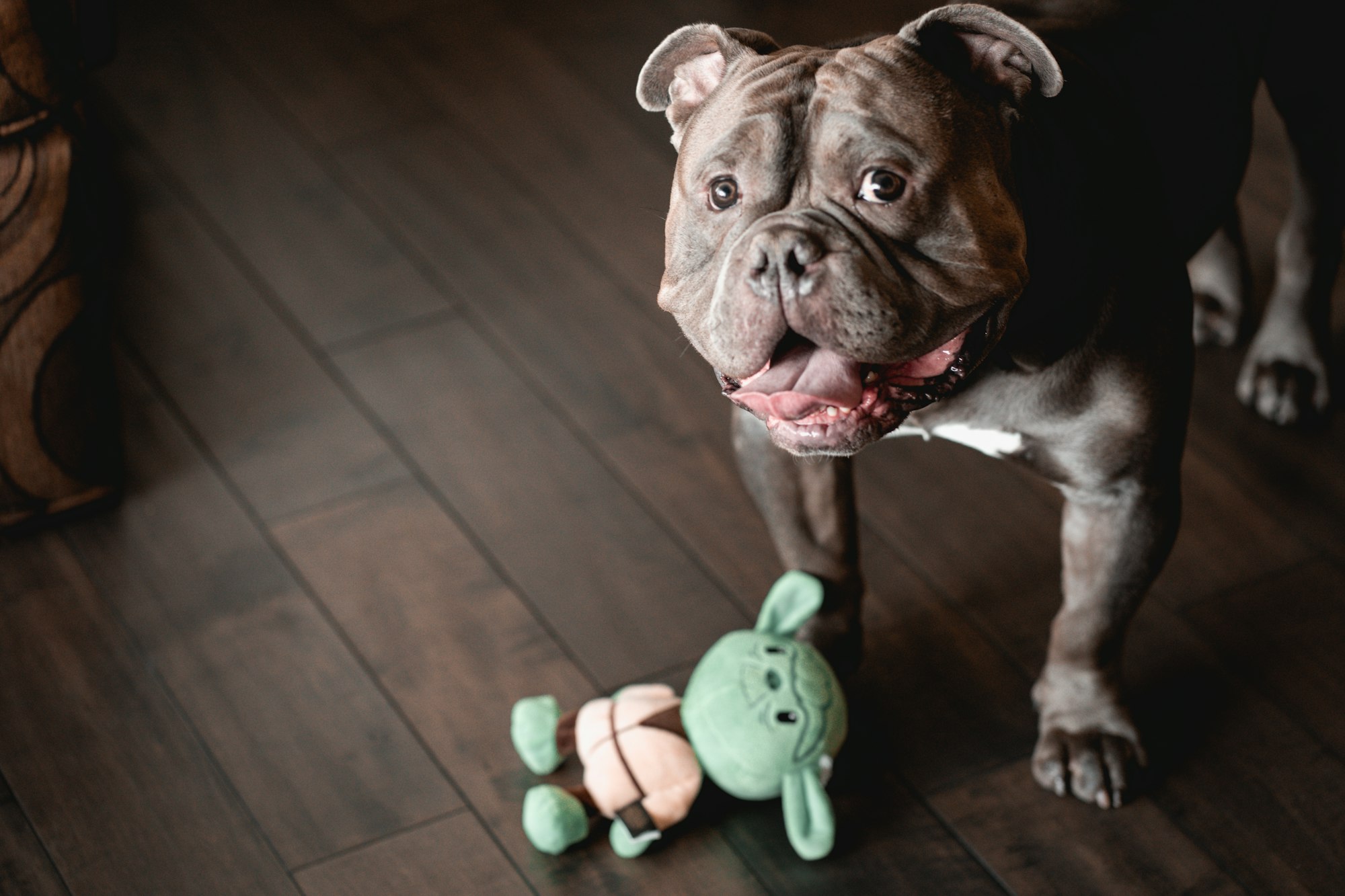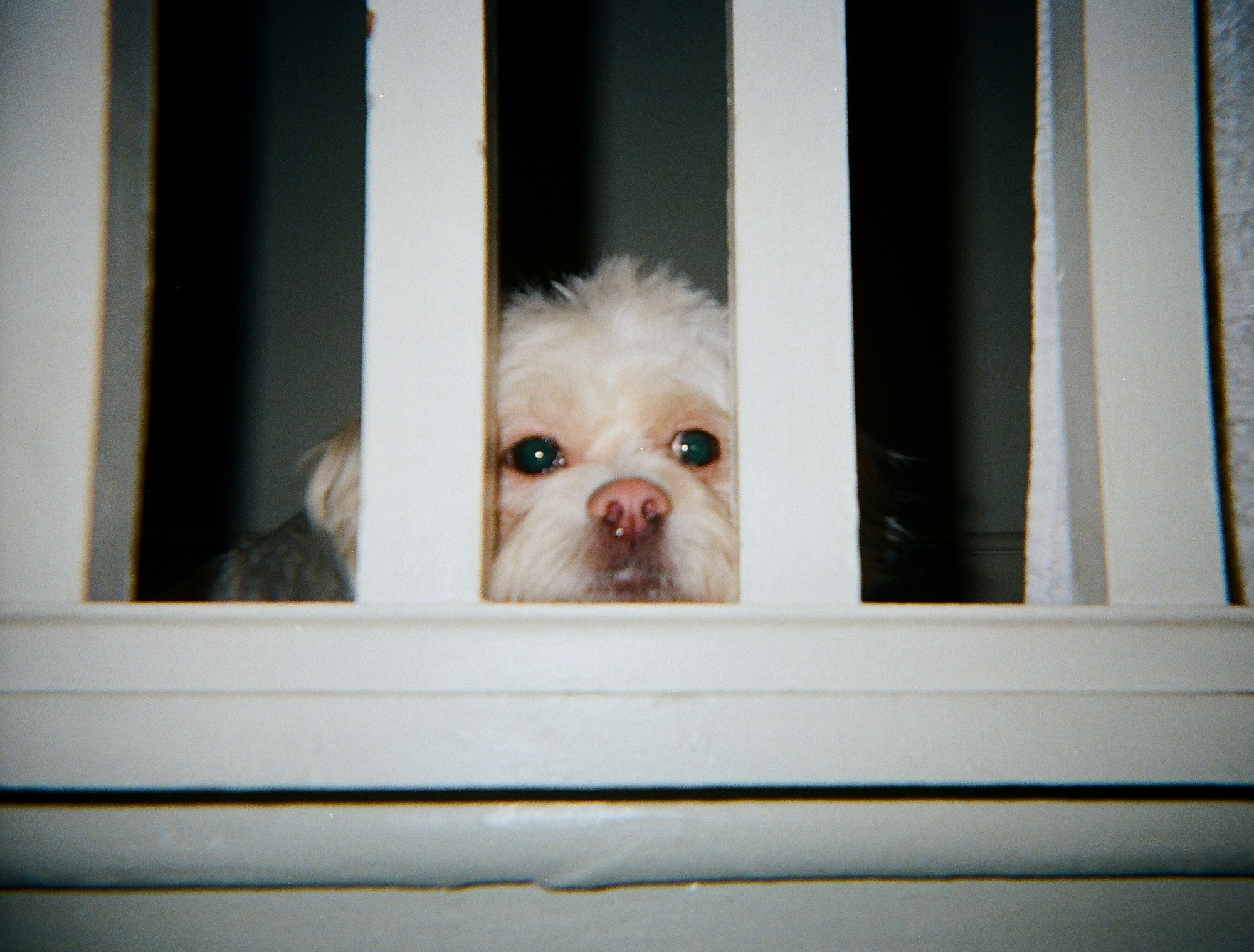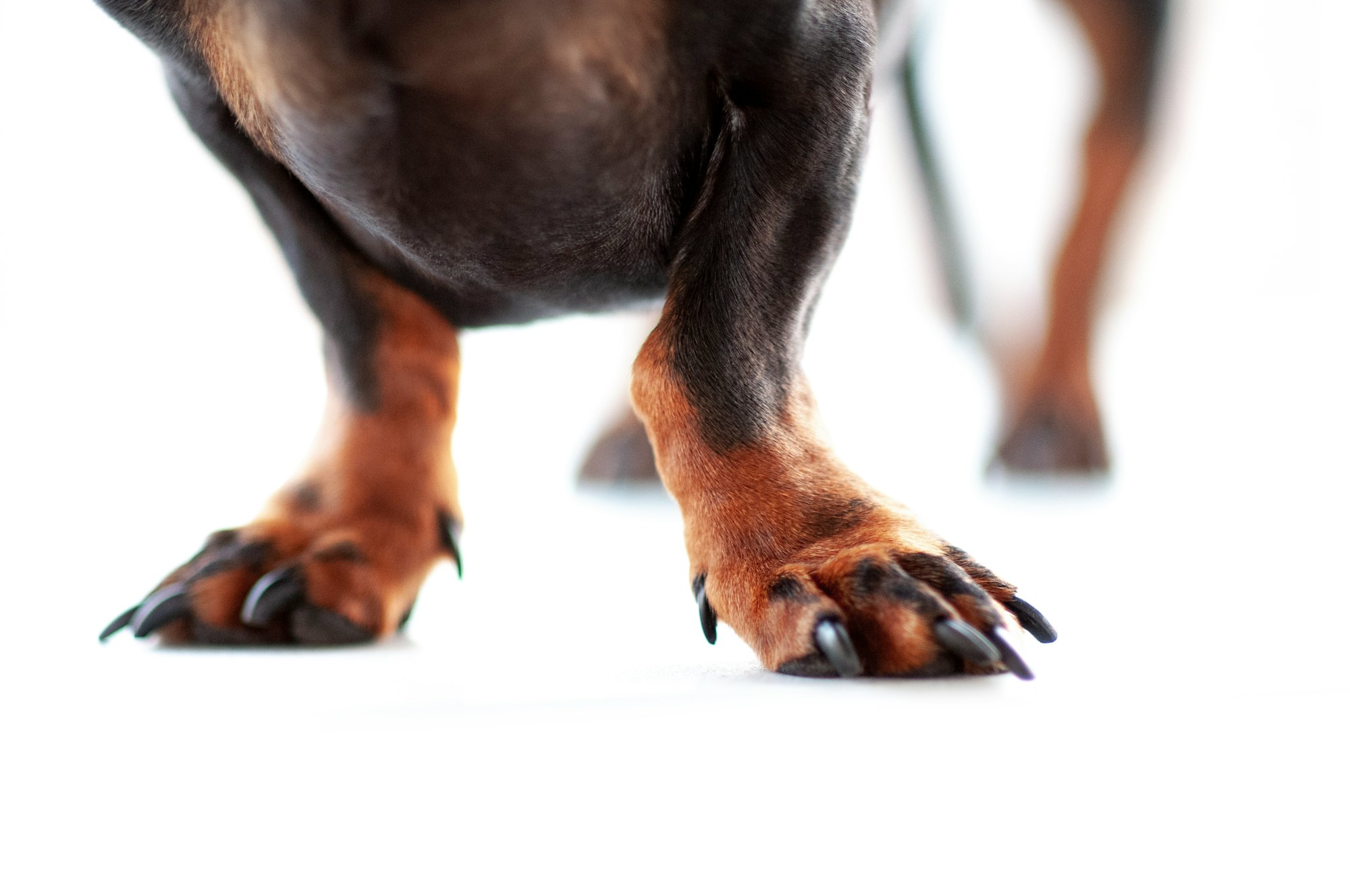It's frustrating and probably a little maddening when you discover that your beloved dog has peed on your bed. No one wants to change the sheets at bedtime, especially when it's because of something as annoying as this.
Your dog probably looks guilty, but before you punish your pet for bad behavior, do some investigating to find out why your dog peeing on your bed is really about. Then work to fix it so that your sheets remain dry and your dog retains its place as a treasured member of the family.
Why Is My Dog Peeing on My Bed?
It's an honest question. Before you can fix a problem, you have to find out why it's happening. There are several reasons why your dog might pee on your bed.
- Is your puppy too young to control its bladder?
- On the other hand, old dogs can develop bladder control issues – just like older people.
- Is your dog dependably house trained?
- And have you been diligent about taking your pet out on a regular schedule?
- Were you out longer than usual, and it just couldn't hold it any longer?
- Perhaps the poor dog has a bladder infection or some other health issue that's causing the trouble.
- Has your dog been drinking and eating more than usual?
- Is the dog marking territory?
- Could it be upset by changes in the household?
- Was there a storm or fireworks, or even someone yelling in the house?
- Is this a brand-new problem, or has it been going on for a while?
By answering these questions, you can begin to narrow down the list of possible reasons for the behavior.
One thing is certain. Your dog is NOT peeing on your bed to spite you!

Should I Punish My Dog for Peeing on My Bed?
No! Punishing a dog for peeing on your bed is a bad idea. First, your pet will not understand why it's being punished. Second, punishment doesn't teach a dog anything. And third, a timid, scared dog will often pee wherever it's at.
No matter what your old uncle on your mom's side has told you, rubbing a dog's nose in its pee or poop will not teach your dog anything except that you might be crazy.
It's best to take the dog out of the bedroom and secure it in a safe location while you change the bedding. Try to do it calmly and without causing your dog to fear your temper. Another household member might be able to take it outside or to another room.
You will learn how to clean your bed at the end of this article.

How Can I Get My Dog to Stop Peeing on My Bed?
The answer will depend on the reason why your dog started to pee on your bed. First, you will need to rule out medical issues, so call your veterinarian for a health check.
If it's not medical, then you will have to give some thought to the other reasons listed above. The answer might not be immediately apparent because you might have to think like a dog to figure it out.
It would be so much easier if we could just ask, but since our dogs cannot talk, it's up to us to do the detective work.
Here are some steps to take:
1. Get a clean bill of health.
Your vet will do a health exam to rule out urinary tract, bladder, and kidney problems. This will require some blood work and a urine sample. If it's not an infection or a stone, and the urinary system looks healthy, there are still some health conditions that can cause excess urination.
Dogs can become diabetic or suffer from Cushing's disease, both of which can be treated. With a diagnosis, your vet can plan a course of treatment that should stop the bed wetting.
Veterinarians are also good sources of information about the other reasons why your dog is peeing on the bed. Together, you might find an age-related, environmental, or emotional reason and make a plan to correct it.
2. Analyze your home for triggers.
Nervous dogs can have trouble holding their urine when stressed out. Your anxious dog probably retreats to your bed for comfort because it smells like you. The peeing is unintentional. Triggers like thunder and Fourth of July block parties are hard to avoid, but there are ways to help your dog through them.
Dogs that suffer from separation anxiety may benefit from medication under your vet's supervision. Some people find dog-appealing pheromones helpful. Others have used CBD products with good results.
An unneutered male dog sometimes starts peeing on the furniture to mark his territory. If there's a female in heat anywhere in the neighborhood, that's going to get his attention and cause him to start marking. Neutering him may help, but some training will probably also be required.
Something as simple as getting a new couch or having visitors can trigger a dog to pee in strange places. New babies take attention away, and your pet might feel unloved—but that does not mean that your dog is getting back at you by peeing on the bed.
If you discover that your dog has an environmental reason, you can attempt to change things back to a more familiar setting, or you can help your dog work through its discomfort with the way things are now. Dogs are smart, and they want to please us. Sometimes it just takes a little work to communicate with each other.
3. Return to house training basics.
With young puppies and rescue dogs of any age, you will want to take a step back and give them a refresher course on house training. Many dog owners have had great success with crate training. Done properly, your dog will see the crate as its safe space.
If you are not sure how crate training works, you can find lots of helpful information in books and online. Dog trainers are also a great option. Your vet probably knows one or two.
Some of the key factors in housebreaking a dog are determined by the dog's age and general health. But here are a few things to keep in mind when working with your dog.
- Keep your dog away from your bed unless you are in it, and don't mind sharing space. (It's perfectly fine not to allow your dog on the bed at all, too.) Closed doors and crates will prevent the dog from getting the chance to pee in your bed.
- Take your dog outside often enough. Puppies and old dogs will need to go out more often. The minimum is when they first wake up, after they eat and/or drink, when they return from being out, and before bedtime.
- Make sure the dog always has access to water so that they don't drink too much at one time.
- If you have to be away all day at work, another family member or even a dog walker can make sure the dog doesn't spend too many hours between potty breaks.
- If you notice your dog sniffing around for a place to go, stop what you are doing and rush them outside to the place you have chosen and let them go there.
- Use positive reinforcement when your dog goes where you want it to. Treats work, but your dog wants to hear your praise!
4. Use an enzymatic cleaner on your bedding.
The scent of pee on your bed and bedding will entice your dog to pee there again. If you are lucky, only the sheets will be wet. It's quite a bit more work to clean a mattress of dog pee.
The thing about urine is that the smell hangs on even after you've used the methods below. So, you will want to use a special cleaner with enzymes that will break down and remove that odor. Your vet might have recommended one at your visit.
Follow the directions on the bottle, and be sure to treat ALL of the bed linen and the mattress.
How Do I Clean Dog Pee From My Bed?
First, pull off the sheets, blankets, comforters, and pillows. You can put the wet ones directly into the washing machine with detergent and some enzymatic cleaner.
Check the mattress. If it's wet, blot the spot with paper towels. Do not rub the urine further into the mattress. You can throw some baking soda on to help pull out the moisture and then vacuum it up after it's dried.
Use the enzymatic treatment as directed. A carpet spot-cleaning machine can be helpful during this process. It might take more than one treatment.
You might decide to sleep on the couch until you are satisfied that the job is complete. You might even decide that a waterproof mattress cover is a good investment. This writer can certainly vouch for a waterproof mattress cover.

Conclusion
We love our dogs, but they sometimes do things that we would rather they not do. Peeing on our beds is one thing we can all agree is a no-no. When it happens, remember to check for medical problems first and then concentrate on house training. Your dog wants to please you.
Keeping our dogs healthy, well-trained, and properly cared for gives us the best chance of living happily with them.
Reacting quickly but kindly when our dogs have an accident shows them that they can trust us. After all, we all make messes sometimes.
Your dog does not pee on your bed to annoy you. It's up to you to find the cause and help your dog do better in the future.
Get more expert advice on pet-parenting by visiting the Off Leash blog at TryFi.com.
TryFi's The Fi Dog Collar is a must-have for any pet parent, it's a GPS tracking collar that helps you keep tabs on your dog's location, activity, and sleep patterns, and alerts you if they escape your backyard. Try the Fi Dog Collar today!

